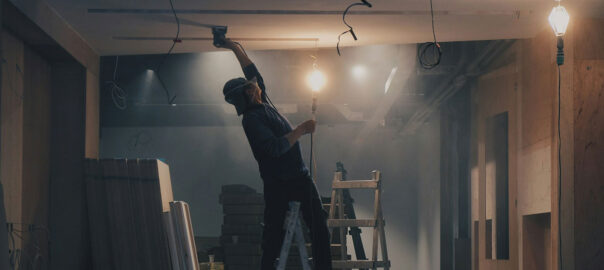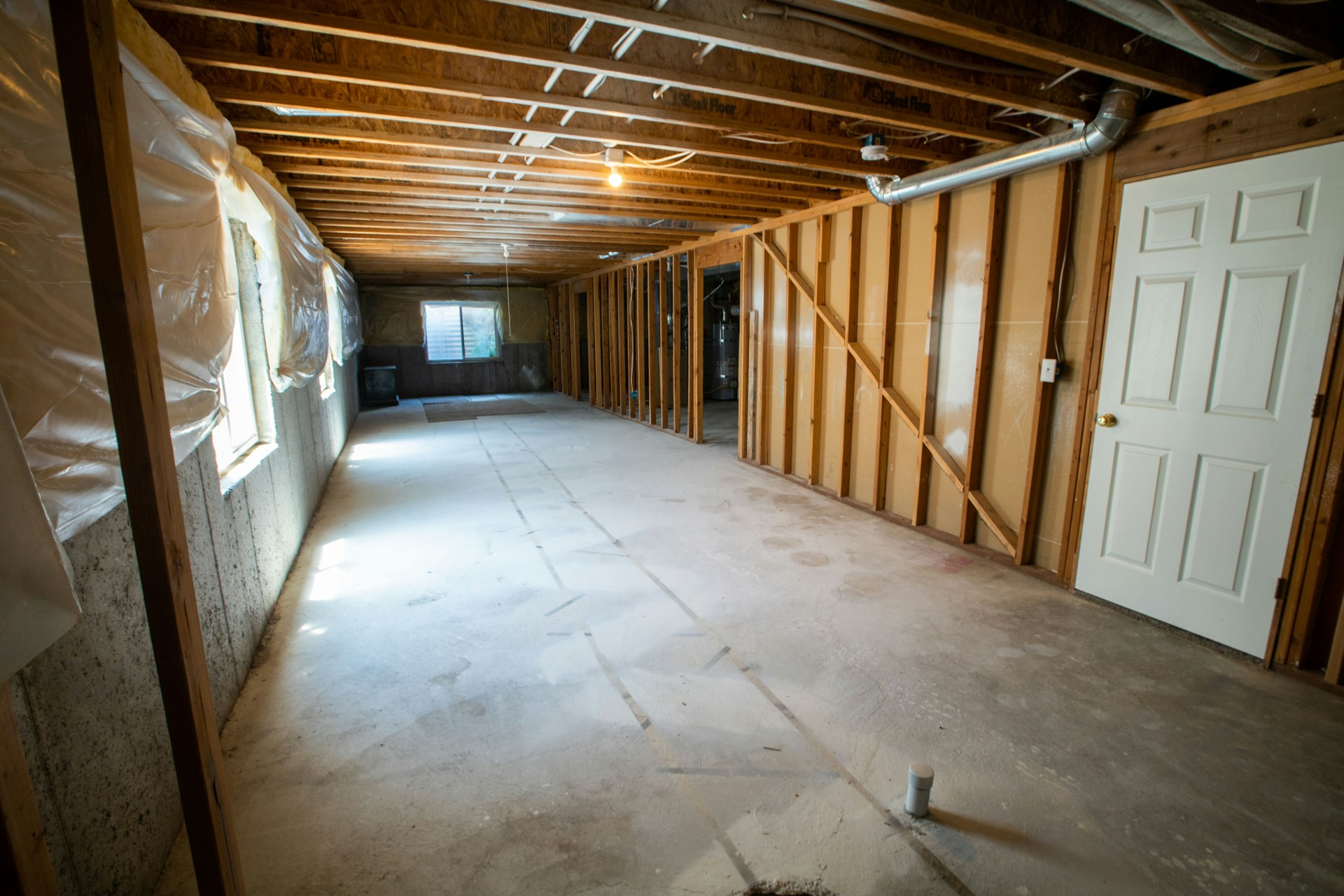When it comes to home improvement projects, basements are often overlooked spaces. However, with the right planning and design, a basement can be transformed into a functional, serene, and quiet area. Whether you’re turning your basement into a home theater, music studio, office, or even a guest room, soundproofing is essential to ensure the space remains quiet and peaceful. At BIC Construction, we believe that proper soundproofing not only enhances the usability of a basement but also adds significant value to your home.
In this comprehensive guide, we’ll take you through everything you need to know about basement soundproofing—from understanding sound transmission to exploring the most effective soundproofing techniques and materials. By the end of this blog, you’ll have a clear understanding of how to create a peaceful, noise-free basement that you and your family can enjoy.
Why Soundproofing Matters
Basements often serve multiple purposes—whether as additional living space, home offices, or entertainment areas. However, because basements are located below the main living area and are typically surrounded by walls, ceilings, and floors connected to other parts of the home, they are prone to sound transmission.
1. Noise from the Rest of the House
The basement is often located directly below busy areas of the home, such as the kitchen, living room, or bedrooms. Noise from footsteps, conversations, or appliances can easily travel down through the floor into the basement, disrupting the peace and quiet you want in your basement space. If you’re using the basement for activities that require focus, such as working from home or practicing a musical instrument, unwanted noise from the upper levels of your house can become a major distraction.
2. Noise Escaping the Basement
Just as noise can enter the basement from above, it can also escape from the basement into the rest of the home. For example, if you’re using your basement as a home theater, gym, or music room, the sounds from those activities may disturb other members of your household. By soundproofing your basement, you can contain the noise and create a more enjoyable environment for everyone in your home.
3. Improved Privacy
For many homeowners, privacy is a primary concern. Whether you’re using your basement as a personal retreat, an office, or a guest room, soundproofing helps ensure that conversations and activities remain private. This is especially important if you’re using the basement as a space for work meetings, meditation, or relaxation.
Understanding Sound Transmission
Before diving into soundproofing techniques, it’s important to understand how sound travels through different materials. There are two main types of sound transmission:
1. Airborne Sound
Airborne sound is transmitted through the air and can include things like voices, music, and the sound of the TV. When airborne sound hits a surface, such as a wall, ceiling, or floor, it can pass through these surfaces and into adjacent rooms. Effective soundproofing methods target the prevention of airborne sound from traveling through these surfaces.
2. Structure-Borne Sound (Impact Sound)
Structure-borne sound, also known as impact sound, is caused by direct physical contact with a surface. For example, footsteps, moving furniture, or banging on walls can create vibrations that travel through the structure of the house. These vibrations can easily pass through the walls, floors, and ceilings, creating noise in other parts of the home. Soundproofing for structure-borne sound often involves absorbing or blocking vibrations to reduce noise transmission.
Key Soundproofing Principles
To effectively soundproof your basement, it’s important to understand the key principles of soundproofing. These principles can be applied in different ways depending on the layout and purpose of your basement space:
1. Absorption
Absorption involves using materials that can soak up sound waves, preventing them from bouncing around and amplifying within the room. Materials like acoustic panels, foam, and thick carpets are commonly used to absorb sound in order to reduce echo and reverberation.
2. Damping
Damping refers to the process of reducing the energy of sound waves as they travel through a surface or structure. Specialized damping materials, such as Green Glue, are applied between layers of drywall or other surfaces to reduce sound vibrations and minimize noise transmission.
3. Decoupling
Decoupling is one of the most effective methods of soundproofing. It involves creating physical separation between two surfaces so that sound cannot easily pass from one to the other. For example, building a double wall or using resilient channels to separate drywall from wall studs can reduce the transfer of sound through walls.
4. Mass
Adding mass to walls, floors, and ceilings can help block sound from traveling through. Heavier, denser materials are more effective at preventing sound transmission. For example, adding extra layers of drywall or installing mass-loaded vinyl can help block both airborne and structure-borne sound.
5. Sealing Gaps
Even the best soundproofing materials won’t be effective if there are gaps where sound can escape. Sealing gaps around doors, windows, and vents with acoustical sealant or weatherstripping helps prevent sound from leaking in or out of the room.
Best Soundproofing Techniques for Basements
Now that we’ve covered the basics, let’s dive into the best techniques and strategies for soundproofing your basement. These techniques can be tailored to your specific needs and the purpose of your basement space.
1. Soundproofing Basement Walls
Basement walls are a major source of sound transmission, especially if they’re thin or made of materials that easily conduct sound. Here are some effective methods for soundproofing your basement walls:
- Insulation: Adding insulation to your basement walls is a great way to absorb sound and prevent it from passing through. Fiberglass insulation, mineral wool, or cellulose insulation can be installed in the wall cavities to reduce noise transmission.
- Double Drywall: Installing a second layer of drywall can add mass and reduce sound transmission through walls. For even better results, apply a damping compound like Green Glue between the two layers of drywall to further reduce noise.
- Acoustic Panels: Installing acoustic panels on your basement walls can help absorb sound waves and prevent them from bouncing around the room. This reduces echo and reverberation, making the space quieter and more pleasant.
- Resilient Channels: Resilient channels are metal strips that can be attached to wall studs, creating a gap between the drywall and the wall frame. This decouples the drywall from the structure, reducing the transmission of sound through the walls.
2. Soundproofing Basement Ceilings
Since basements are often located directly below other living areas, soundproofing the ceiling is crucial to block noise from above. Here are some effective ceiling soundproofing methods:
- Acoustic Insulation: Just like walls, basement ceilings can benefit from the addition of insulation. Installing sound-absorbing insulation between the ceiling joists helps reduce the transmission of airborne and impact sound from the floor above.
- Drop Ceilings with Acoustic Tiles: Drop ceilings are a popular choice for basement soundproofing. Acoustic ceiling tiles can be installed in a suspended ceiling grid, providing both sound absorption and a professional, finished look.
- Mass-Loaded Vinyl (MLV): MLV is a dense, flexible material that can be installed on basement ceilings to block sound transmission. It’s particularly effective for reducing airborne sound and can be used in combination with other soundproofing materials for maximum effectiveness.
- Decoupled Drywall Ceiling: Similar to wall soundproofing, a decoupled ceiling can be created by installing resilient channels or sound isolation clips. This helps prevent structure-borne sound from traveling through the ceiling and into the basement.
3. Soundproofing Basement Floors
Although noise from the basement is more likely to travel upward through walls and ceilings, soundproofing the floor is still an important step in creating a peaceful space. Here’s how to soundproof your basement floor:
- Carpeting: Adding thick carpeting or rugs is an easy and effective way to absorb sound and reduce noise transmission through the floor. Carpeting also helps minimize the sound of footsteps and other impact noise.
- Cork Underlayment: Cork is a natural sound-absorbing material that can be installed under flooring materials like hardwood, tile, or laminate. It’s a great choice for basement floors because it not only reduces sound but also provides insulation and cushioning.
- Rubber Flooring: Rubber flooring is another excellent option for basement floors, especially in home gyms or playrooms. It’s highly effective at reducing impact noise and provides a durable, cushioned surface for exercise and other activities.
4. Sealing Gaps and Openings
Even with the best soundproofing materials, small gaps and openings can allow sound to leak in or out of the basement. Be sure to seal the following areas for maximum soundproofing effectiveness:
- Doors: Basement doors are often a weak point for sound transmission. Replacing hollow-core doors with solid-core doors can significantly reduce noise. Adding weatherstripping around the door frame and installing a door sweep can further block sound from escaping.
- Windows: If your basement has windows, installing soundproof curtains or window inserts can help block outside noise. Additionally, sealing gaps around window frames with acoustical caulk helps prevent sound leaks.
- Vents and Ducts: Sound can travel through HVAC vents and ducts, making it important to address these areas. Installing soundproof vent covers or baffles can help reduce noise transmission through air ducts.
By soundproofing your basement, you can transform it into a versatile and serene space that caters to various needs, whether it’s a quiet home office, a noise-controlled media room, or a peaceful guest area. Proper soundproofing adds value to your home, enhances privacy, and significantly improves the quality of the environment. At BIC Construction, we’re committed to helping homeowners create well-designed, functional spaces with expert soundproofing techniques. With careful planning, the right materials, and professional execution, you can achieve a quiet and peaceful basement that suits your lifestyle.



